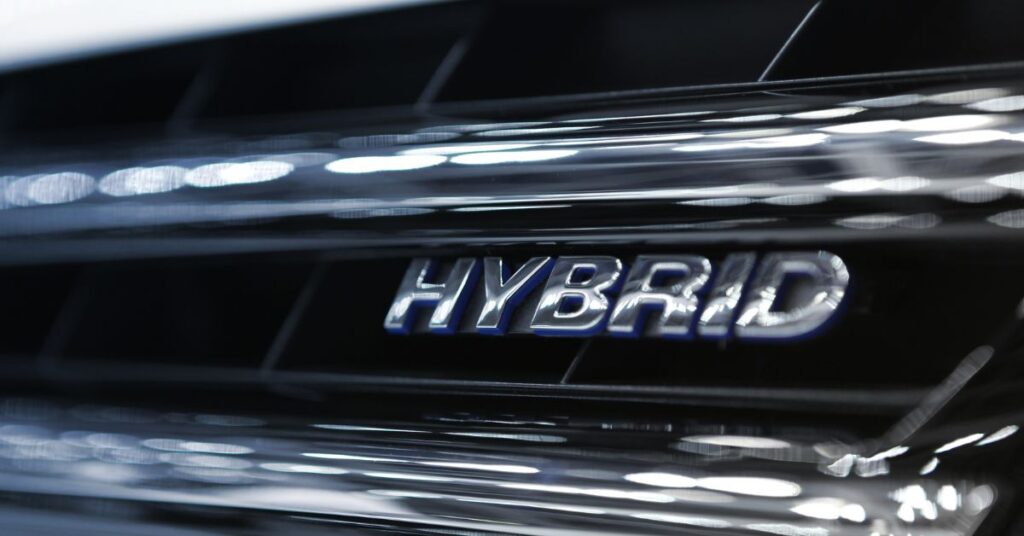
Table of Contents
Hybrid cars blend the efficiency of electric motors with the power of traditional internal combustion engines. This unique combination brings with it a specific set of maintenance needs. Understanding what maintenance a hybrid car needs is essential for hybrid car owners to ensure their vehicles run efficiently and last longer. Let’s delve into the specifics of hybrid car maintenance, breaking down the key areas that need attention.
What Maintenance Does a Hybrid Car Need?
Hybrid vehicles, with their advanced blend of electric and combustion engine technologies, demand a unique approach to maintenance. While they share some commonalities with traditional cars, certain aspects of their care are distinct and crucial for optimal performance.
1. Engine Oil Changes
Hybrids may rely less on their combustion engines than conventional vehicles, but regular oil changes remain a cornerstone of hybrid car maintenance. The reduced engine use often means longer intervals between oil changes, but adhering to the manufacturer’s schedule is crucial. Using the correct type of oil is equally important, as some hybrids require specific grades or types of oil to function optimally.
2. Cooling System Service
Hybrid vehicles come equipped with sophisticated cooling systems designed to manage the heat produced by the electric motor and the battery pack. This system plays a pivotal role in maintaining the performance and longevity of these components. Regular service includes checking the coolant levels, inspecting hoses for wear or leaks, and replacing the coolant at intervals specified by the manufacturer.
3. Battery Health Checks
A hybrid battery will require regular health checks. Although hybrid batteries are designed for durability, their efficiency can diminish over time. Professional assessments can help gauge the battery’s condition and predict its lifespan. Battery maintenance also includes ensuring proper cooling and, in some cases, cleaning of battery contacts.
4. Brake System Maintenance
Hybrid vehicles feature regenerative braking systems that help recharge the battery during braking, often resulting in longer brake life. However, this doesn’t eliminate the need for regular brake maintenance. This includes checking brake pads and rotors for wear, ensuring the brake fluid is at the correct level, and replacing it per the maintenance schedule.
5. Tire Maintenance
The significance of tire maintenance in hybrids is heightened due to the additional weight of the battery pack. Properly inflated and aligned tires are vital for optimal fuel efficiency and safe handling. Regular tire checks should include monitoring for correct inflation, inspecting for tread wear, and ensuring proper alignment and rotation.
6. Transmission Fluid Check
The transmission in a hybrid is a complex piece of machinery, often designed to work seamlessly with the electric motor. Keeping the transmission fluid at the right level and condition is critical to smooth operation. Regular checks and changes of the transmission fluid are essential, as the vehicle manufacturer recommends.
7. Inspect and Replace Air Filters
Clean air filters contribute significantly to the efficiency of the engine and the comfort of the vehicle’s cabin. Regular inspection and timely replacement of the engine and cabin air filters ensure that the engine breathes easily and the interior air quality is maintained.
8. Hybrid-Specific Component Checks
Certain components are unique to hybrid vehicles, such as inverter/converter units and electric motor generators. Regular inspections by a qualified technician, like those at McCullough NAPA Auto Care, are essential to catch any issues early. These components are crucial for the vehicle’s electric drive system and require specialized knowledge for proper maintenance.
9. Software Updates
Just like your smartphone or computer, hybrid vehicles often receive software updates. These updates can enhance the vehicle’s performance, efficiency, and sometimes even its driving characteristics. Updating the car’s software is an often overlooked aspect of hybrid maintenance but can benefit significantly.
10. Suspension System Checks
The additional weight of hybrid components can strain the suspension system. Regular checks are essential to identify any issues like worn struts or springs. A well-maintained suspension system is crucial for handling and passenger comfort.
11. 12-Volt Auxiliary Battery Maintenance
Besides the main hybrid battery, these cars usually have a standard 12-volt battery for powering auxiliary systems. Like in conventional vehicles, this battery needs periodic checks and eventual replacement. Its maintenance is similar to that of non-hybrid vehicles and is essential for reliable operation.
12. General Inspection and Maintenance
Lastly, general maintenance, such as checking lights, windshield wipers, and other basic components, is as essential in hybrids as in any car. Regular inspections can help catch minor issues before they turn into significant problems.
Schedule Hybrid Car Maintenance With McCullough NAPA
Maintaining a hybrid vehicle involves combining traditional car care and attention to its unique, sophisticated systems. Regular, comprehensive maintenance ensures the hybrid car continues to perform at its best, providing both efficiency and reliability. Remember, understanding and keeping up with hybrid car maintenance is the key to enjoying the full benefits of hybrid vehicle ownership. Contact the team at McCullough NAPA to get started today, and be sure to ask about our mile maintenance programs!

